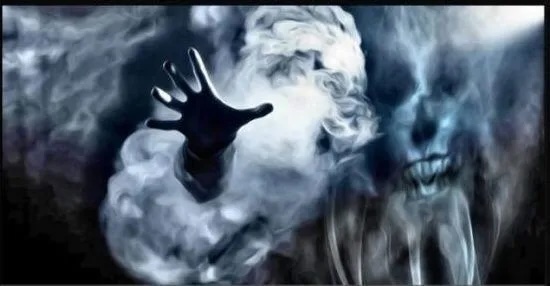By Guest Contributor Michelle Lemke-Budke, Founder, First City Paranormal of Kansas
Ghost and spirit are two terms often used interchangeably to refer to supernatural entities. However, there are subtle differences between the two. A ghost is commonly believed to be the spirit or soul of a deceased person that has not yet moved on to the afterlife. Ghosts are often associated with haunting specific locations or individuals and are believed to be able to interact with the physical world.
A spirit is a broader term that has a wide range of supernatural beings, including angels, demons, and other non-human entities. Spirits are often seen as ethereal beings that exist in a different realm or dimension and may have various powers or abilities. While both ghost and spirit are associated with the supernatural, the term ghost is more commonly used to describe the lingering presence of a deceased person.
The beliefs surrounding ghosts and spirits vary across different cultures and religions. In many Western cultures, ghosts are often associated with fear and the supernatural. They are commonly depicted as malevolent entities that can cause harm or bring bad luck. However, in some Eastern cultures, ghosts are seen as ancestors or protective spirits. Ancestor worship and rituals to honor the deceased are prevalent in these cultures. On the other hand, spirits are often regarded as benevolent beings in many indigenous belief systems. They are seen as guides, protectors, or intermediaries between the human and spiritual realms.
When it comes to appearances, ghosts are often depicted as translucent or semi-transparent figures. They are commonly portrayed wearing clothing from the era in which they lived or died. Ghosts are often associated with a pale or ethereal glow, and some describe them as having a mist-like or wispy form. On the other hand, spirits can take on a wide range of appearances. They can manifest as orbs of light, shadowy figures, or even animal-like entities. Some spirits are believed to be shape-shifters, capable of assuming different forms.
Ghosts are often believed to interact with the living in various ways. Some people claim to have seen or heard ghosts, while others experience cold spots or unexplained phenomena in haunted locations. Ghost hunters and paranormal investigators use specialized equipment to capture evidence of ghostly activity, such as EVP (Electronic Voice Phenomena) or thermal imaging. On the other hand, interactions with spirits are often more subtle and personal. Many individuals claim to have felt the presence of a spirit, received guidance or messages, or experienced a sense of peace and comfort in the presence of a spirit.
In conclusion, while ghosts and spirits share some similarities, they also differ in many ways. Ghosts are often associated with deceased individuals who have not moved on, while spirits encompass a broader range of supernatural entities. Ghosts are commonly depicted as translucent figures with unfinished business, while spirits can take on various forms and are not necessarily tied to specific locations. Cultural beliefs and interactions with the living also differ between ghosts and spirits. Whether you believe in their existence or not, ghosts and spirits continue to captivate our imaginations and play a significant role in various cultural and religious beliefs around the world.



One Response
I found this most interesting and will look into it more. I had not even thought about it being 2 SEPARATE entities , ghost vs spirits.
thank you Anna Maria for this information!